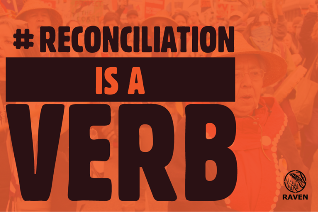National Day for Truth and Reconciliation

September 30 has been declared the National Day of Truth and Reconciliation.
Let’s all commit to learning more and taking steps to develop right relations with both Indigenous peoples and the land, water and living beings that sustain us as growers.
There are many resources out there, here's some we suggest:
1. Truth and Reconciliation Commission
Read the TRC summary and Calls to Action at https://nctr.ca/records/reports/.
The National Centre for Truth and Reconciliation has a week of
programming, some of which is live, some of which is available on YouTube
https://nctr.ca/education/trw/.
How is the government living up to the Calls to Action? See the
Yellowhead Institute’s analysis https://yellowheadinstitute.org/2019/12/17/calls-to-action-accountability-a-status-update-on-reconciliation/
2. What does reconciliation look like? Becoming a better ally
Reconciliation is a Verb - putting the action in reconciliation by RAVEN
What is Reconciliation a short video by Pamela Palmater, Eddy Robinson, Cindy Blackstock
The Montreal Indigenous Community Network has an excellent Indigenous Ally Toolkit http://reseaumtlnetwork.com/
https://4rsyouth.ca/land-back-
3. Listening to the experiences of residential school victims and survivors
Woodland Cultural Centre’s Residential School Virtual Tour
Earth to Tables Legacies has a multimedia article about the Mohawk Institute at https://earthtotables.org/
Toronto Council Fire’s Every Child Matters campaign http://www.councilfire.ca/
The story of residential schools is not just something from the past. Survivors, their children and communities continue to feel the impact and many Indigenous communities still don’t have equal access to clean water, food, education and health services. So many Indigenous people do not have access to land or ways to learn about their culture and language.
You'll find more resources and some thoughts on how to get started at http://
Posted on
